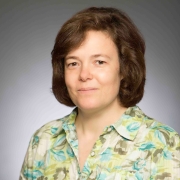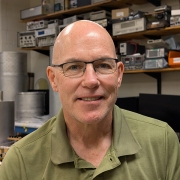Tomson Receives Charles E. Kaufman Foundation Grant for Energy Research

Neil Tomson, an assistant professor of chemistry in Penn Arts and Sciences, has received a grant from the Charles E. Kaufman Foundation, one of The Pittsburgh Foundation’s charitable entities, for his research on coordination chemistry and catalysis using molecular-scale electric fields.
Tomson’s research focuses on developing alternate energy sources by using synthetic inorganic and organometallic chemistry through catalysis, spectroscopy, and computational chemistry; homogeneous catalysts for the synthesis of ammonia in ionic liquids; and the role of covalency in the bonding in uranium compounds.
“Our work takes advantage of modern concepts in bonding theory to generate materials that can influence how energy from renewable sources is collected, stored, and released,” Tomson states. “To do this, we develop both new catalysts for reactions that store energy in chemical bonds and battery materials that can reversibly deliver multiple electrons with minimal energy loss.”
Tomson is a coauthor of twenty papers and articles. He received his Ph.D. from University of California, Berkeley, and has been a post-doctoral associate at the Max Planck Institute for Bioinorganic Chemistry and the Los Alamos National Laboratory.
The Kaufman Foundation awarded a total of $1.8 million in grants to support basic research in biology, chemistry and physics carried out by researchers working in Pennsylvania institutions of higher education. Eight researchers received grants, out of 229 applications.
Charles E. Kaufman was a respected chemical engineer who built his fortune in retirement through astute investing, much of it in drug- and science-based enterprises. The Kaufman Foundation is widely respected as one of the few major funding sources for basic scientific research.





